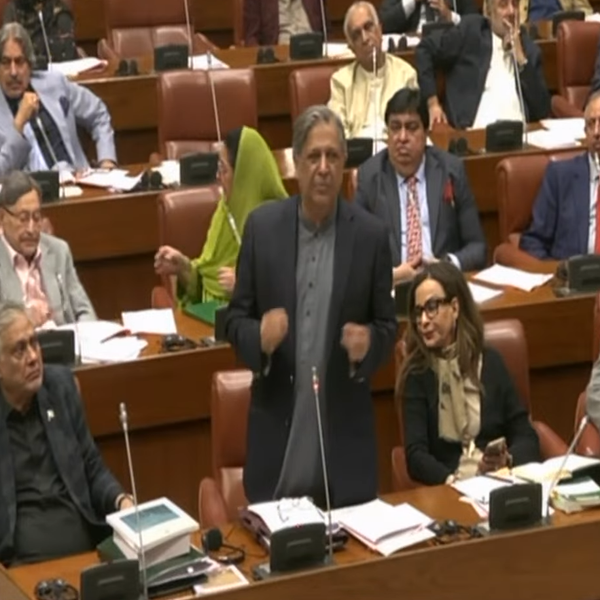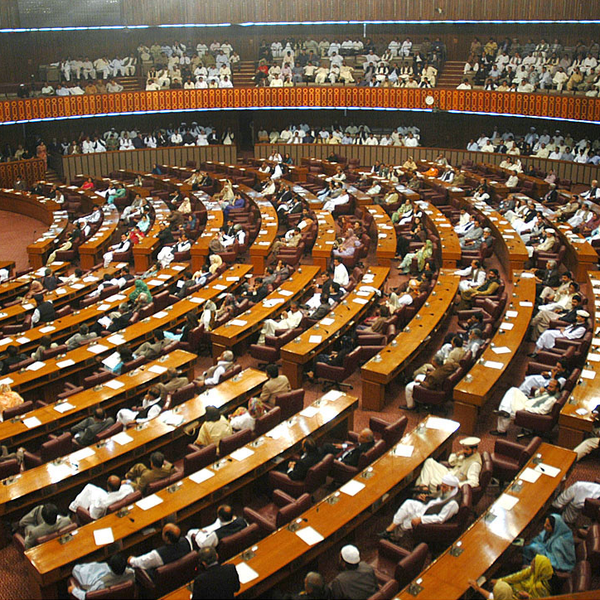Pakistan faces 'now or never' moment for new provinces
Kamran Khan says Pakistan’s governance crisis demands new provinces as 250 million people strain the system
News Desk
The News Desk provides timely and factual coverage of national and international events, with an emphasis on accuracy and clarity.
Kamran Khan has called the present moment “now or never” for creating new provinces or administrative units in Pakistan, arguing that political and institutional conditions are uniquely favorable for such a move.
Khan, in his latest vlog, said Pakistan has reached a critical juncture where governance cannot be improved without redrawing administrative boundaries. He pointed out that after decades, the ruling alliance of the Pakistan Muslim League-Nawaz (PML-N) and the Pakistan Peoples Party (PPP) holds a two-thirds majority in both houses of parliament.
He added that securing the same majority in all four provincial assemblies would not be difficult, making constitutional amendments feasible. According to him, the judiciary, particularly the Supreme Court’s constitutional bench, is aligned with the state and government’s legal decisions.
Military support for reform
Khan emphasized that Pakistan’s most powerful decision-making figure, Field Marshal Syed Asim Munir, has already endorsed the idea. He recalled that Munir shared his views in September 2023 during a meeting with the business community, suggesting that new provinces or administrative units should be created and even proposing a national referendum.
“This reality is now clear to the entire state—that Pakistan’s existing federal structure is the biggest reason for governance failure,” Khan said. “The burden of 250 million people cannot be carried by only four provinces.”
He argued that local governments are powerless before the provinces, which have only strengthened provincial centralization at the expense of grassroots governance. “All political parties, once in power, sidelined the local government system,” Khan said.
Growing imbalance
Pakistan’s current four provinces were created in 1970 when the country’s population was about 60 million. Today, the population has surged to nearly 250 million—a fourfold increase—without any increase in the number of provinces.
According to census data, Punjab’s population has grown from 30 million in 1972 to around 125 million today. Sindh has increased from 10.5 million to 55 million, Khyber Pakhtunkhwa from 10 million to 40 million, and Balochistan from 2.3 million to over 11 million.
“This imbalance has paralyzed governance,” Khan said, noting that provincial governments have failed to deliver basic services, fueling frustration at the local level.
Local governments sidelined
Khan criticized the failure to empower local councils despite the 18th Amendment, which devolved powers from the federation to the provinces. “If provincial governments held local body elections, they deliberately built crippled local governments,” he said.
In Punjab, which has 125 million people, no local government has existed for nearly four years. The last local elections were held in May 2015, and the elected bodies completed their terms in December 2021. Similar dysfunction exists in Sindh, Khyber Pakhtunkhwa, and Balochistan.
Khan pointed to Karachi as an example. Despite having a PPP mayor, town councils, and union council leadership, the city remains plagued by municipal problems. “The demand for empowered administrative units, especially in big cities like Karachi, has reached the point of no return,” he said.
Beyond ethnicity or geography
Khan stressed that new provinces should not be carved out on ethnic or regional lines. Instead, he said, the focus should be on administrative efficiency, resource distribution, and improved governance.
“The time has come to divide administrative and financial powers so governance becomes effective, health and education systems improve, and problems are solved locally,” he said.
He argued that provinces with massive populations and territory are harder to govern. “In 1970, four provinces were enough for 60 million people. Today, they are not enough for 250 million,” he said. “New provinces and administrative units are essential for Pakistan’s progress and stability. It is in the interest of the state and the entire nation.”











Comments
See what people are discussing